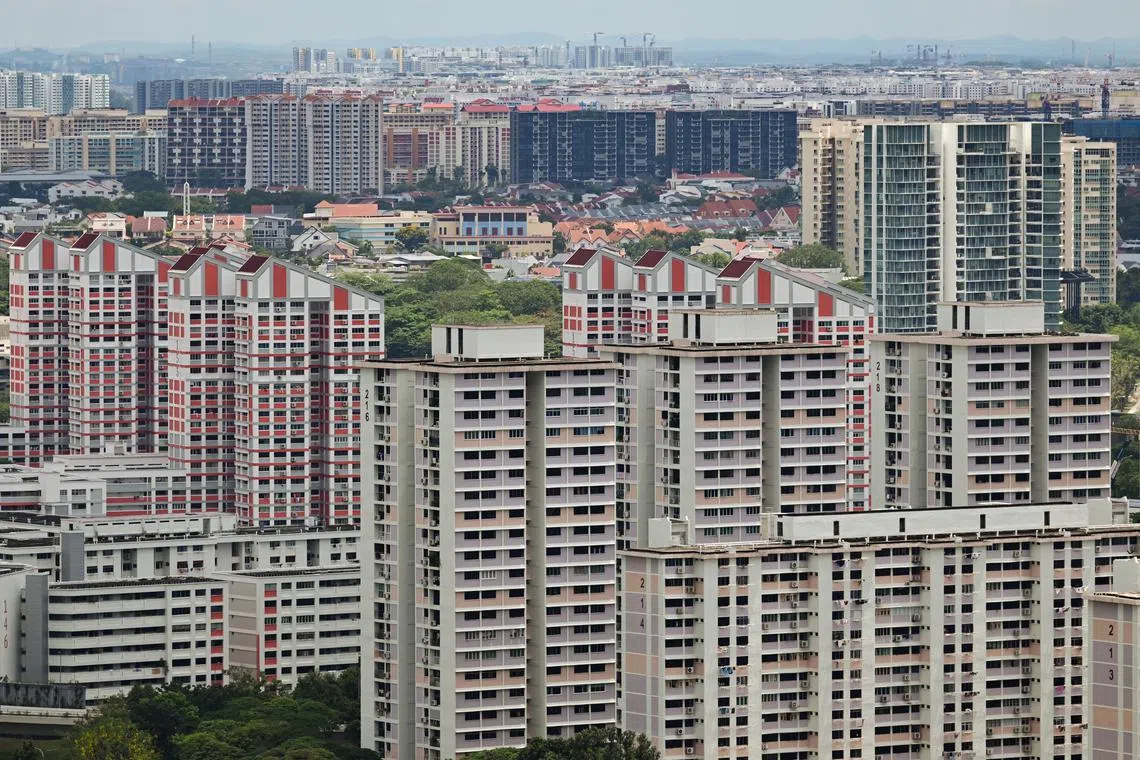Sounds of doors slamming, furniture being dragged: Noise complaints surge during Covid-19 pandemic
Sign up now: Get ST's newsletters delivered to your inbox

In 2022, the Housing Board received about 27,600 complaints on noise from residents’ activities.
PHOTO: ST FILE
SINGAPORE – Complaints over noisy neighbours soared during the Covid-19 pandemic, when many people worked and studied from home.
In 2022, the Housing Board (HDB) received about 27,600 complaints – or 2,300 feedback submissions on average per month – on noise from residents’ activities.
The figure is more than five times the 4,800 cases HDB received in 2019. The monthly average of complaints it received in 2020 and 2021 was 2,500 and 3,200 respectively, said the Municipal Services Office (MSO). The office is part of the Government’s efforts to improve the delivery of municipal services by public agencies.
One of the top noise concerns is inter-floor noise, which includes sounds of furniture being dragged, rolling marbles and doors being slammed.
To address severe cases, MSO will form a unit
The unit, to be formed by the year end, will leverage stronger laws and work closely with the police and other government agencies, as well as community mediators and the courts if needed.
The Government will continue to encourage good neighbourly communication and tolerance, but will step in to help settle disputes in serious cases.
“As neighbour noise disputes do not usually require immediate attention, MSO will visit the neighbours concerned or conduct further investigation, where needed, within the next one to two days. We believe this is a more sustainable approach to bring relief to neighbours with a genuine grievance, and discourage the wilful weaponisation of noise,” an MSO spokesman said.
“We will not intervene too early so that we preserve the community’s capacity to resolve disputes among themselves when they first occur. But we will intervene at appropriate junctures, for example, to keep the peace ahead of planned mediation between the neighbours.”
Over the years, the authorities have taken steps to address noise spats.
First responders such as HDB and grassroots leaders have been encouraging meaningful engagement among residents.
Still-feuding residents will typically be referred to the Ministry of Law’s Community Mediation Centre for voluntary mediation. If it fails, residents can apply to the Community Disputes Resolution Tribunals (CDRT) for a court order to stop their neighbours from committing the act that causes the noise and seek damages of up to $20,000.
Cases where noise is used as a weapon to disrupt the peace among neighbours will be included under the new legal framework on mandatory mediation for community disputes announced by Second Minister for Law Edwin Tong at his ministry’s budget debate last week.
Parties involved in noise-related disputes could face penalties if they do not attend the mandatory sessions. They also will not be able to file a claim at the CDRT, he added.
Currently, a person who makes excessive noise that causes or is likely to cause annoyance or inconvenience can be fined up to $1,000, but no one has been convicted in the past 12 months, said MSO.
It will set up an experiential space in the second half of 2023 to educate residents on socially acceptable noise levels and the ways that they can manage noise in their daily living.
This space seeks to help residents understand the cause and effect of inter-floor noise disturbances, which have been identified as a major category of neighbourhood noise complaints.
More details will be shared when they are ready.
“A person experiencing a noise disturbance may not be aware of the cause of the noise, and where it is coming from. This may sometimes lead to speculation from residents during noise disputes,” said the MSO spokesman.
“The experiential space allows visitors to experience for themselves how activities in their daily living may unwittingly create different levels of inter-floor noises, and raise awareness on concrete steps they can take to minimise such noise disturbances to their neighbours.”



